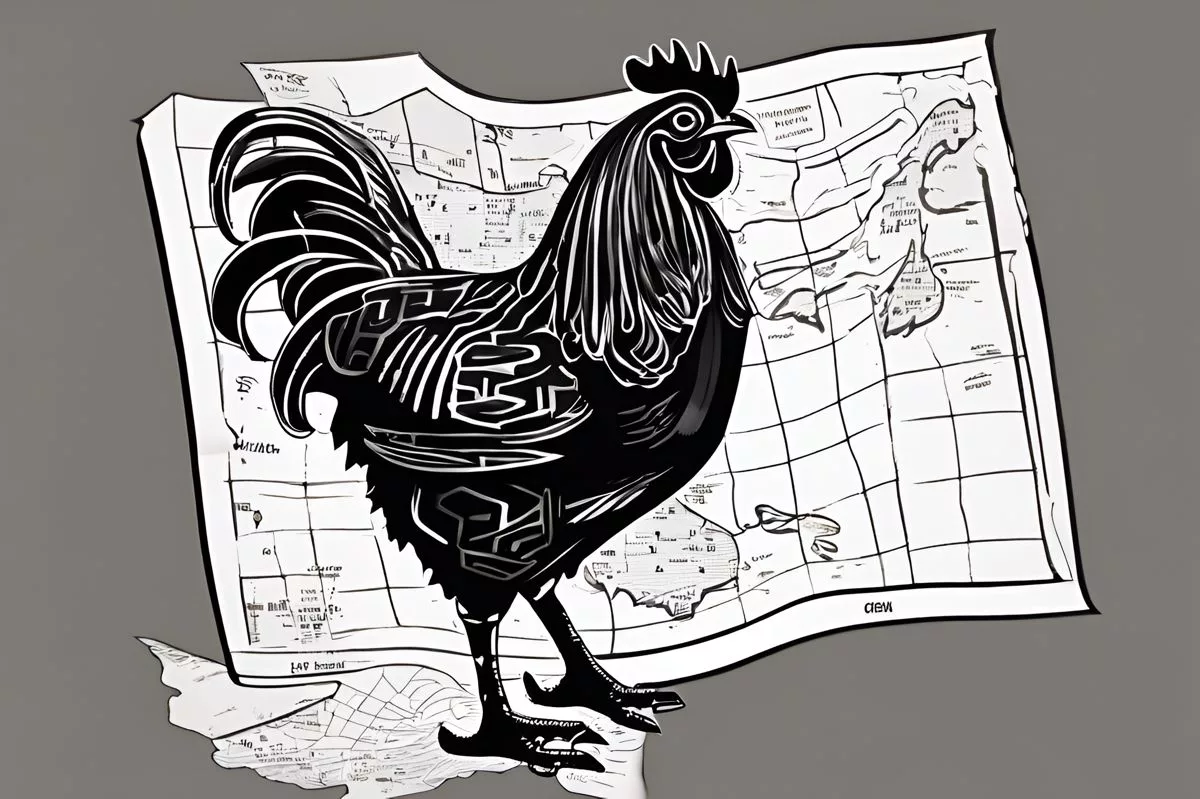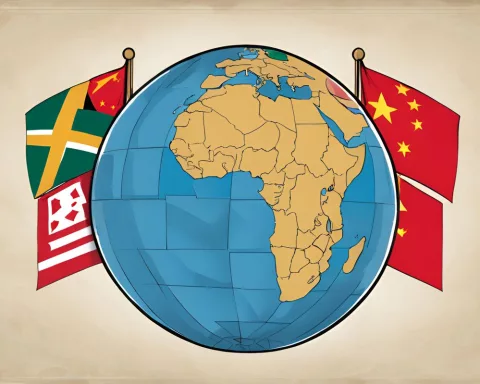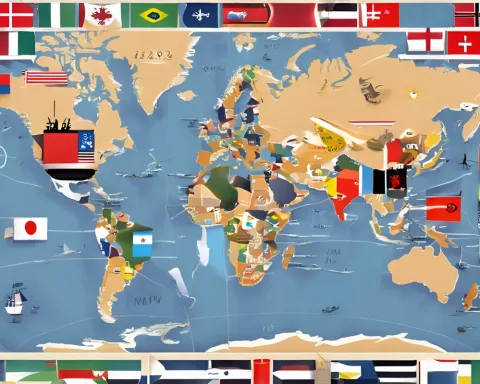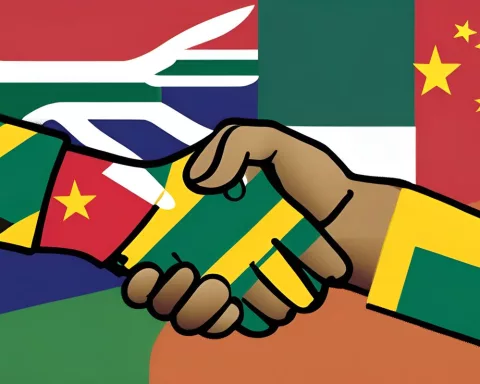South African company AskCarlaKote has secured a deal to export chicken feet to China, worth R300 million, creating around 3,000 new jobs and delivering 540 tonnes of chicken feet per month. The partnership between Wesgro, Standard Bank, and female-led poultry farms in Western Cape and Mpumalanga provinces will revolutionize the South African poultry industry and provide a significant boost to the employment sector. Chicken feet make up 50% of China’s yearly chicken imports, and this deal indicates South Africa’s potential as a key exporter and a significant step towards enhanced economic integration between South Africa and China.
South African company AskCarlaKote has secured a deal to export chicken feet to China, providing a significant boost to the South African poultry industry. The deal, worth R300 million, is expected to create around 3,000 new jobs and involves the delivery of 540 tonnes of chicken feet per month. The agreement is a result of a successful partnership between Wesgro, Standard Bank, and female-led poultry farms in the Western Cape and Mpumalanga provinces. Chicken feet make up 50% of China’s yearly chicken imports.
Revolutionizing the Poultry Industry
A South African company has recently made a significant stride into the Chinese culinary market, spearheading a new venture that holds considerable promise for the South African poultry industry. The popular delicacy of chicken feet, also termed ‘walkie-talkies’ in China, has provided an unprecedented opportunity for this groundbreaking business.
AskCarlaKote, a firm based in the Western Cape, has secured a lucrative deal worth R300 million to export chicken feet to China, where this unique delicacy is highly prized. The deal is the result of a successful alliance between Wesgro and Standard Bank, and is expected to create around 3,000 fresh job opportunities, providing a much-needed surge to the employment sector.
A Golden Opportunity for Poultry Farmers
This agreement foresees AskCarlaKote delivering around 540 tonnes of chicken feet on a monthly basis. The primary sources of these supplies will be poultry farms managed by women in the Western Cape and Mpumalanga provinces. This indicates a great breakthrough for the female farmers involved, and signifies a positive shift towards gender inclusivity and empowerment within the agricultural sector.
Despite a recent bird flu outbreak causing a temporary hiccup in operations, the company’s founder, Carla Kote, remains sanguine about the future. Kote voiced her belief that all regulatory hurdles would be surmounted, clearing the path for the inaugural order to reach China by year-end.
Groundbreaking Collaborative Efforts
This historic trade agreement stands as a turning point not only for AskCarlaKote but for the wider South African poultry industry. It serves as a stellar exemplar of how partnerships, in this case between Wesgro, Standard Bank, the farming sector, and AskCarlaKote, can stimulate economic development and induce industry transformations. The initiative has also received backing from the agricultural departments in Mpumalanga and Western Cape, reflecting the government’s resolve to foster such transformative ventures.
Interestingly, chicken feet form a whopping 50% of China’s yearly chicken imports, underlining their widespread popularity among Chinese consumers. Traditionally incorporated into soups, stews, and snacks, these chicken feet have been majorly imported from Brazil, Vietnam, and the United States. Thus, South Africa’s entrance into this market, previously monopolised by these nations, signals its potential as a key exporter.
Industry Leaders Laud the Agreement
Wrenelle Stander, Wesgro’s CEO, hailed the agreement as an important benchmark for the South African poultry industry. Stander affirmed that the deal demonstrated the power of collaboration and innovation in bolstering economic growth, and pledged her organization’s ongoing support to businesses in stimulating growth and job creation.
Mireille Wenger, MEC for Finance and Economic Opportunities, echoed these sentiments, viewing the deal as a source of immense pride and a clear indication of the expansion they were keen to support, with the ultimate goal of bringing widespread benefits.
The Future of South African-Chinese Trade Relations
The genesis of this venture lies in a B2B matchmaking event, where a Chinese company’s keen interest in importing chicken feet set the stage for this landmark agreement. The potential impact of this deal extends beyond mere monetary value; it signifies a significant step towards enhanced economic integration between South Africa and China, laying the groundwork for potential future collaborations.
1. What is AskCarlaKote’s deal with China?
AskCarlaKote has secured a deal to export chicken feet to China worth R300 million, delivering 540 tonnes of chicken feet per month and creating around 3,000 new jobs.
2. What is the significance of this deal for the South African poultry industry?
This deal is a significant stride into the Chinese culinary market that holds considerable promise for the South African poultry industry. It indicates South Africa’s potential as a key exporter and a significant step towards enhanced economic integration between South Africa and China.
3. How will this deal benefit female-led poultry farms in South Africa?
The primary sources of the supplies will be poultry farms managed by women in the Western Cape and Mpumalanga provinces, providing a much-needed surge to the employment sector, and signifying a positive shift towards gender inclusivity and empowerment within the agricultural sector.
4. What is the significance of chicken feet in the Chinese market?
Chicken feet make up 50% of China’s yearly chicken imports, underlining their widespread popularity among Chinese consumers. They are traditionally incorporated into soups, stews, and snacks.
5. What is the government’s stance on this deal?
The initiative has received backing from the agricultural departments in Mpumalanga and Western Cape, reflecting the government’s resolve to foster such transformative ventures.
6. What is the potential impact of this deal on South African-Chinese trade relations?
This deal signifies a significant step towards enhanced economic integration between South Africa and China, laying the groundwork for potential future collaborations.












